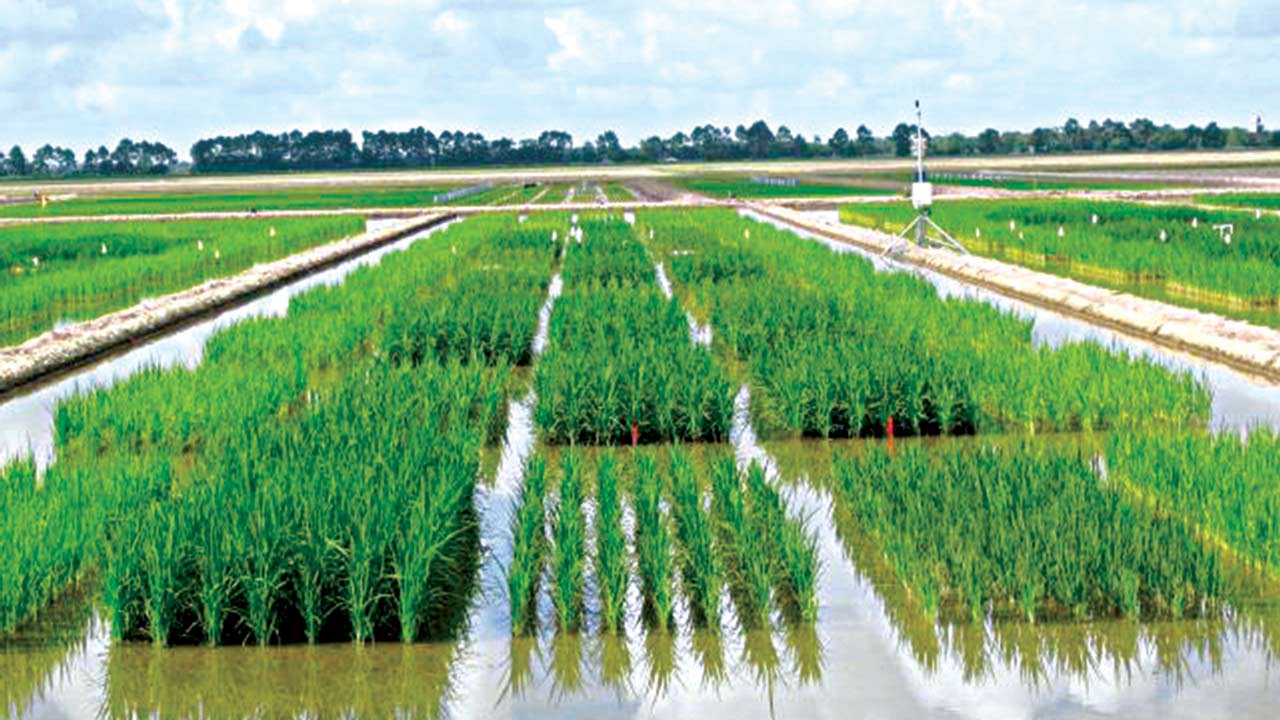
With food inflation already spiralling out of control, thus putting pressure on disposable income of many households, the Lagos Chamber of Commerce and Industry (LCCI), has expressed concern over the recent incidents of flooding in key food-producing states in the North.
Noting that this may further put pressure on many Nigerians and spike inflation rate, the Chamber said the occurrence has wiped off food and cash crops on a large scale and disrupted output projections in agriculture.
It estimated that over two million tonnes of rice were reportedly lost to flood, while crops such as sorghum, corn, and millet were also affected.
LCCI President, Toki Mabogunje, during a press briefing on the state of the economy, said the rising inflation trajectory has serious implications for businesses regarding production cost, investment real return rate, and overall economic performance.
Maintaining that that the Chamber expects inflation to sustain its upward trajectory for the rest of the year, she said: “The major drivers of inflation are structural factors, which are beyond the purview and control of monetary authorities.”
Mabogunje argued that the combination of food supply shocks, foreign exchange restrictions on food and fertilizer imports, higher energy costs electricity and petrol, exchange rate adjustment, poor infrastructure, and insecurity in major food-producing states would pressurize domestic price level in the near term.
“We note the adverse implications of rising inflation for households, businesses, investors, and the economy at large. The Lagos Chamber calls on the fiscal and monetary authorities on the need to synergize to moderate domestic prices to a level conducive for sustainable and inclusive economic growth. The Federal Government might need to reopen the land borders to give succour to food prices in the light of lower domestic food supply amid huge demand for food,” she advised.
She urged the fiscal authorities to work towards developing a multi-modal transport system to reduce logistics costs and improve efficiency in conveyance of food commodities from farms to markets while also mobilizing efforts towards strengthening Nigeria’s security architecture to stem the escalated level of insurgency largely in the Northern region.
Besides, the Chamber also expressed concerns about the nation’s rising debt profile without corresponding impact on output growth and economic development, noting that this was fast becoming unsustainable in the light of dwindling oil prices and production.
“At the peak of the pandemic in the second quarter, the Federal Government received financial support worth $3.4 billion and $288.5 million from the International Monetary Fund (IMF), and African Development Bank (AfDB), respectively, while negotiations are also on-going for a cumulative $1.8 billion credit support from the World Bank, African Development Bank (second tranche) and Islamic Development Bank. Adding this to prospective domestic issuance could possibly push the country’s public debt stock to around N34 trillion by year-end, equivalent to 23 percent of the GDP,” she warned.
She continued: “According to official statistics from the Debt Management Office, public debt stock grew by eight percent to N31 trillion at the end of the second quarter, equivalent to 21 percent of the GDP. We note the increase in public debt stock was fuelled by fresh domestic and external borrowings required to plug the wider fiscal deficit in the revised 2020 budget given the impact of the pandemic on oil and non-oil sources of revenue. We also note the impact of recent exchange rate depreciation on the country’s level of external indebtedness.”
She said the Chamber’s position is reinforced by the uptrend in debt-service-to-revenue ratio from 60 per cent by year end 2019 to 72 per cent as of May 2020, stressing that the high rate continues to hinder robust investments in hard and soft infrastructure, which are key to stimulating productivity and improving living standards.
Mabogunje also noted the reduction in monetary policy rate from 12.5 per cent to 11.5 per cent at the September 2020 meeting of the Monetary Policy Committee (MPC), but said the challenges of declining output and spiralling inflation are driven largely by structural factors, which cannot be resolved by monetary policy alone.
“We support the stance of the Monetary Policy Committee on the urgent need of a broad-based combination of fiscal and monetary policy measures to curb rise in inflation and contraction in output growth. The Lagos Chamber feels both sides of authorities also need to promote measures that would significantly de-risk the real economy to encourage financial institutions to provide credit at cheaper rates to the investing community,” she added.



